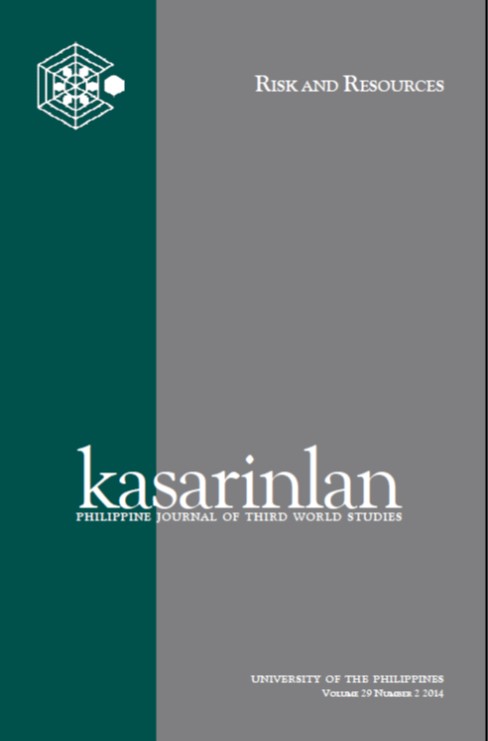Engaging Local Knowledge for Disaster Risk Reduction
Abstract
Disaster risk reduction and management (DRRM) programs have largely utilized knowledge from engineering and the physical sciences. The cultural dimensions of disasters, of which local knowledge is a part, have been neglected in the past. Recently, however, experiences of how cultural groups have exhibited resilience in the midst of potentially devastating hazards have shown the value of local knowledge to disaster risk reduction and mitigation. This paper aims to bring to the attention of DRRM planners and program implementers the value of incorporating local knowledge in their work. Referring to local knowledge as ways in which cultural groups have adapted to their environment, this paper delves into the various instances in which people have used local knowledge to understand and interpret their world and, ultimately, how such knowledge have helped them adapt to hazards. However, it is also pointed out that the incorporation of local knowledge in disaster risk reduction programs can be a daunting task. Recommendations have been forwarded to allow for a more efficient means of using local knowledge in disaster risk reduction. Among these notable recommendations is to view disaster risk reduction programs as part and parcel of broader human development programs that would address not just hazards but people’s vulnerabilities as well.
Published
2017-03-14
How to Cite
DALISAY, Soledad Natalia M..
Engaging Local Knowledge for Disaster Risk Reduction.
Kasarinlan: Philippine Journal of Third World Studies, [S.l.], v. 29, n. 2, p. 75-102, mar. 2017.
ISSN 2012-080X.
Available at: <https://journals.upd.edu.ph/index.php/kasarinlan/article/view/5599>. Date accessed: 13 sep. 2025.
Section
Articles
Keywords
local knowledge, disaster risk reduction, risk, culture
By submitting a manuscript, the authors agree that the exclusive rights to reproduce and distribute the article have been given to the Third World Studies Center.



